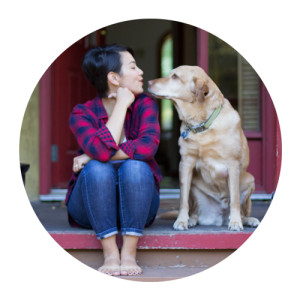Today, Ella had her first un-parented swimming lesson. Let’s just say, it didn’t go that well. There was a lot of lip, a lot of tears and very little swimming going on. She hated it. But then again, she doesn’t like most things when she first tries them. Ella, like many children (and adults) takes a while to get comfortable with new experiences. And let’s face it – she doesn’t catch on as fast as other children. Take Ballet for example. When she first started ballet she would dart off across the room when it wasn’t her turn (a lot) and she would flop down on the floor when it was her turn. She didn’t understand that she needed to control her mind and her body and move it in a specific way. This may sound simple enough, but just think about an aerobics class and how difficult it is for some to nail down the moves. Zumba? to this day, my body does not understand that kind of movement. We came up against resistance and I was uncomfortable. I (not Ella) felt self conscious about the fact that I was in the class having to carry her along, chase after her and hold her hand. I wondered what the other parents thought. Did you get that I was afraid of what they might think. But we overcame it. To borrow from Nike, we just did it. And soon enough with each class, she understood more how the structure of the class worked. She understood that she needed to take turns. She understood how to make her body move it the way that was demonstrated. We didn’t quit.
I would often chat with the teacher, who understood what I was going through because she too, has a son with disabilities and she believes in Ella. She knows that she can do it. It might just take a little longer. She says, “I can see it in her eyes, she is intelligent.” She commented how many parents inquire about enrolling their child with a disability but when she says yes, and then says it may just take some extra work or an arrangement that best works for them (like having Momma join the class for a while), they run, because they see it as resistance…which is not the case at all but when you are self-conscious to begin with, it can seem that way. And I am going to let in on a little secret – most parents of children with disabilities struggle with self-confidence, especially when the disability is physically evident. Perhaps not because of their own person but because they know that people are thinking thoughts. Ironically, chances are, their thoughts are not necessarily bad or harmful, but merely mental notes. “Did you see that little girl? I think she has Down Syndrome. Do you think she has Down Syndrome? She seemed to just stare blankly, kinda unaware. Why doesn’t she talk. Gee, that’s so sad. I can’t imagine what I would do if I had a child with Down Syndrome. I don’t think I could do it.”
I face it every time I take Ella with me to drop Jakob off at school. There is one mom, whose daughter happened to be in Ella’s ballet class who NEVER talks to me even though we should know each other from ballet. Once she asked me if Ella was going into Kindergarten next year because she wanted to know if her daughter would be in the same class. She said it would’ve been nice if they were in the same class. But then I wondered why? Why do your want you daughter in the same class? I wonder what parents think…because no one ever talks to me. She, this mom, has talked to Ben. In fact she says really nice things to him like, “you are very patient parents.” Or once, she got teary eyed apologizing to him after school one day because in the morning she had said the R-word and noted that Ben was walking with Ella near enough to hear it. It’s commendable, and as I say, relatively harmless, but you can no longer blend into a crowd. People watch what they say around you, or just choose not to be around you at all.
Today at swimming, Ella did not blend in. Nor did I, as I sat at the edge of the pool, getting my jeans soaked while I tried to encourage her to participate. I braced myself as the class ended, prepared my speech, “It’s okay, she’ll get used to it, just give her a couple of weeks, it’s okay if she doesn’t pass, it’s just about getting her used to it.”As we left, I delivered my consolation to a young swimming instructor who probably could care less, but I did it anyway because I felt self-conscious.
So why tell you this? Because if you aren’t a parent of a child with a disability, you need to know that it’s okay to talk to us. We’d rather you talk to us than let us speculate on what you’re thinking….because we know you’re thinking something.
And if you are a parent of a child with a disability, know that it’s okay and you’re not alone. What matters is that you power through the resistance. It’s going to be uncomfortable, sometimes, it will even be painful, but you and your child will be the better for it. You accept their disability but work through it to manifest and draw out, their many abilities. Ella did horribly when she first started ballet, but after eight weeks she figured it out. And it’s only going to get better.












Leave A Reply